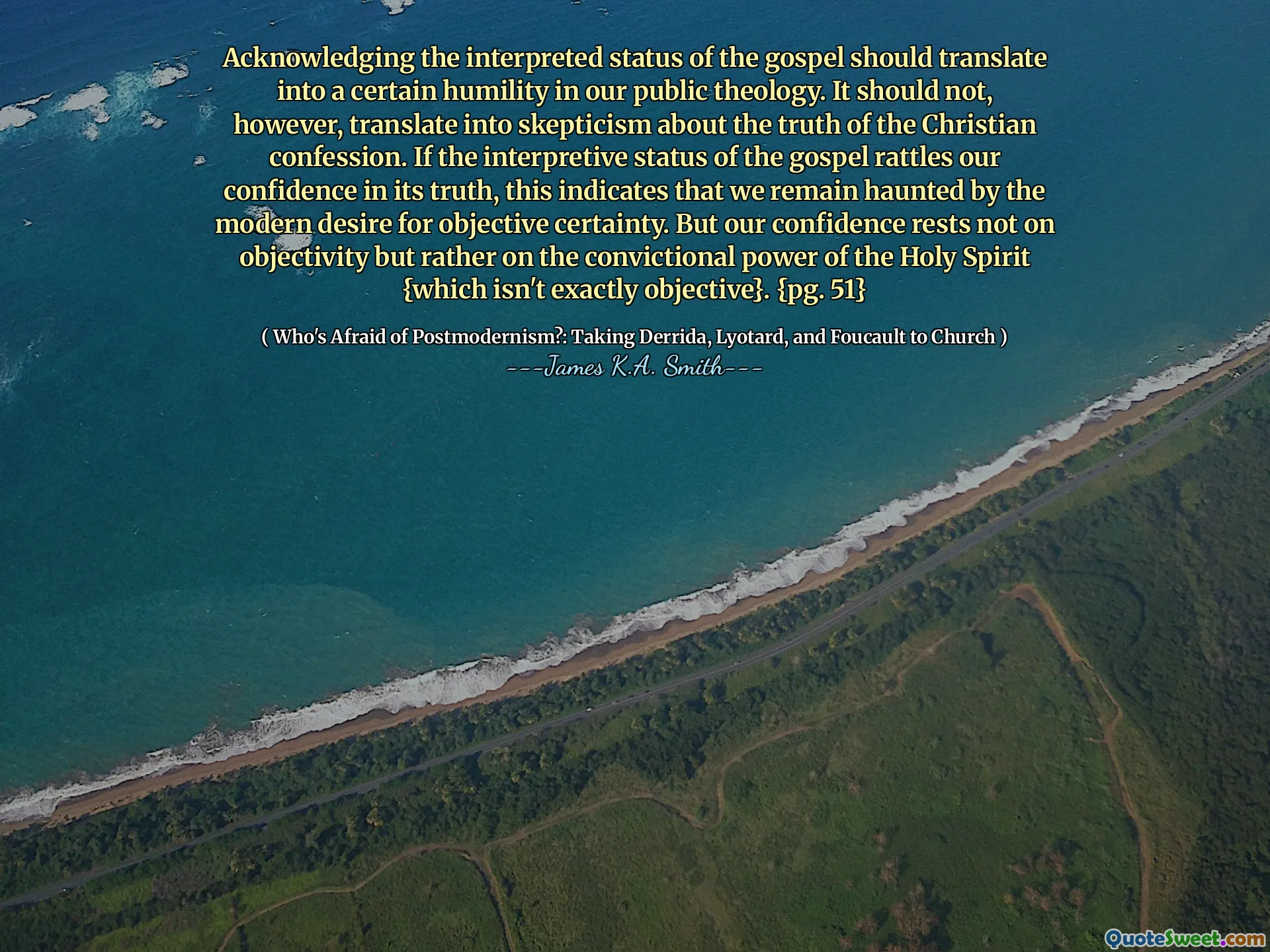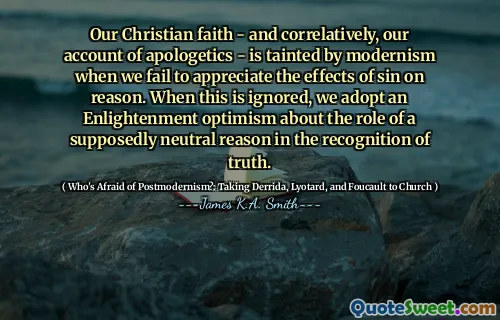
Acknowledging the interpreted status of the gospel should translate into a certain humility in our public theology. It should not, however, translate into skepticism about the truth of the Christian confession. If the interpretive status of the gospel rattles our confidence in its truth, this indicates that we remain haunted by the modern desire for objective certainty. But our confidence rests not on objectivity but rather on the convictional power of the Holy Spirit {which isn't exactly objective}. {pg. 51}
The quote emphasizes the importance of humility in engaging with the gospel, recognizing that interpretation inherently introduces a subjective element. This acknowledgment encourages believers and theologians to approach their understanding with an openness that avoids dogmatism, while still affirming the core truth of Christian faith. It highlights a tension rooted in modern epistemology: the pursuit of objective certainty often leads to skepticism, especially when spiritual matters are prioritized in human terms. However, the author suggests that true confidence in the gospel does not depend on achieving pure objectivity but relies on the transformative power of the Holy Spirit. Recognizing the interpretive nature of biblical texts should not diminish faith but rather deepen humility and trust in God's active presence. This perspective challenges the modern quest for absolute certainty, urging believers to embrace a faith grounded in spiritual conviction rather than empirical assurance. It invites a balanced approach—acknowledging our interpretive limitations while maintaining trust in divine revelation through the Spirit. Such an outlook encourages a community life where humility and confidence coexist, promoting a theology that is both honest about its limitations and bold in its trust in God's truth.
This quote engages deeply with the ongoing dialogue between modernism and postmodernism concerning truth and certainty in faith. It reflects a movement away from reliance on human epistemology towards an understanding that spiritual truths are ultimately rooted in divine, Spirit-led revelation. In a world overwhelmed by questioning and relativism, this perspective offers reassurance that faith does not require doubting its sincerity but rather approaching it with humility and openness, trusting in God's empowering presence.







